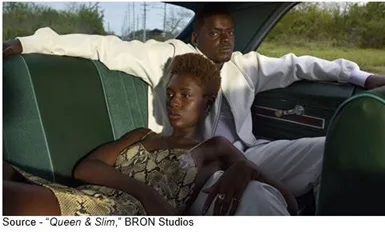New Paths Open Up for Indie Filmmakers, But it’s Still Tough
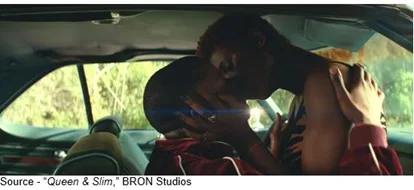
The M&E industry won’t hit all the glowing numbers that were projected this year ($324+B), even though the streaming industry is running full steam and filmmakers in most of the world are once again busy pitching, developing, or in pre-production/post production on their projects.
Studios, investors and film folks are trying to figure out how to get the production/distribution train back on the rails with all the new guidelines and cost in China, the second largest content consumption market in the world.
When the coronavirus hit Wuhan (and spread), the government shut the industry down … BAM!
And as the Earth rotated so did the creative content shutdown.
Everyone was sent home, no matter what stage the project was in.
Production and distribution came to a screeching halt and their indie filmmakers are starting from scratch to see what can be saved.
It won’t be easy.

We missed prowling Cine Gear in June, half a world away from China, and catching up with industry “working class” folks who are always optimistic about the year ahead.
But people we’ve say they’re itching to get projects moving so what’s not to be optimistic about in 2021?
The production studios in the LA area, Toronto, London, Berlin, Amsterdam; oh heck, everywhere, are booked solid for the next couple of years.
They’re back to building new facilities as fast as they can.
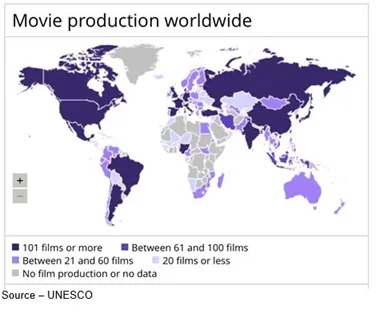
The studios’ output will represent about 40 percent of the video content in the coming year and are already being scheduled for theatrical or streaming distribution.
And it still isn’t enough, because folks have an unquenchable hunger for new stuff.
According to Statista, 786 movies were released in North America last year while Nielsen found that 646,152 unique programs were shown across all of the home/personal channels.
Despite the distribution/consumption shift, we’re still in awe as to how the Academy, Directors Guild, Golden Globe, Spirit and other award programs are still hung up on maintaining their glamourous facade around the projects they want to have shown (first) in theaters.
In addition to their “decent” paychecks, every Oscar acting, directing nominee was a winner last year, taking home a gift bag worth about $150K.
That’s nice for the chosen few but we know lots of indie filmmakers, crew folks who could produce a darn good video story with that kind of money.
In his study of U.S. feature films, film industry analyst Stephen Follows noted that over the past two decades, 37,472 features were made but only 5.7 percent were made/released by major studios.
And the results of their selection?
Nine out of ten didn’t get a theatrical release and were likely unprofitable.
Of those that did reach the theater, most didn’t earn enough to recoup the costs of making, marketing and distributing the movie.
This hasn’t gone unnoticed by the theater industry where young people – historically the largest group of cinema attendees – have been turning to more convenient entertainment options.
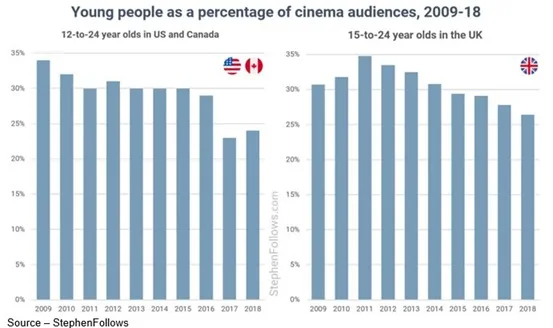
Still, the industry can’t wait for people to return so they can see the box office numbers or the day after Nielsen ratings to validate the investment in the project.
It just seems a lot like casinos adding bells and whistles on slot machines and celebrating the winners.
In the M&E industry they overlook the folks who put all of their creative work on the line and just don’t connect with the consumers’ constantly changing tastes.
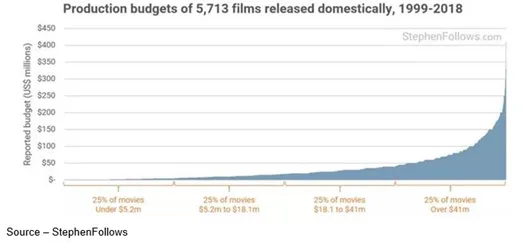
As we see all too often, a big budget doesn’t guarantee success.
Hit enough film festivals and you’ll see standout examples of work where creativity and ingenuity more than compensate for a shortage of money.
You know, projects like:
- The Blair Witch Project – $60K budget, earned $248M
- The Night of the Living Dead (all-time fave) – $114K budget, grossed $30M and became the foundation for a world of sequels, knockoffs
- Eraserhead – $10K budget and has become a classic
- Open Water – budget of $120K, grossed $54M
- Once – $150K, made $9M in the US
- Super Size Me – $65K, took in $11.5M
- Pi – $60K budget, grossed $3.2M
- Primer – $7K budget, grossed $1M
- El Mariachi (another fave) – $7K budget, $2M worldwide
Even as getting seats into seats and appointment TV slide, the demand for good to great content from indie filmmakers grows thanks to the shift in content consumption by the younger generations.
Anywhere, anytime, any screen viewing and the race to add more subscribers by Netflix, Disney, Amazon, Paramount, Apple, Comcast, Universal, Warner, Alefa, Monsoon, Brightlight, DHX, Saga, Pathe’, Rajshir, Red Chillies, Nikkatsu, and operations in every major country have provided indie filmmakers and crew members more opportunities for their work to be seen.
Whether it’s ad-supported or subscription-based, the streaming services know they need variety for existing consumers while they also reach out to attract new folks.
And we all know they have plenty of untapped potential.

With a worldwide market (4.4B people with internet connectivity), streaming companies have only scratched the surface of the new entertainment opportunity.
Netflix 167M subscribers, Disney+ with 100M+, 156M (Amazon Prime, includes free shipping), YouTube (between 2 and 20M, depending on how you count them) and everyone else have plenty of growth potential as long as they have a large and varied content library.
Thanks to the unprecedented opportunity, we were asked twice on conference calls, “I have this great project I need to get funded and would appreciate it if you’d tell me the right person at one of the major studios or services to get in front of.”
The problem is, unless you’re Tarantino, Scicorsci, Ang Lee or some other track-record producer, there is no “right person.”
Despite the overwhelming demand for new and unique content by all of the new channels, the day when someone bets money on a gut feeling that the project is a winner is long gone – if it ever truly existed.
Whether it’s Universal, Paramount, Netflix, BBC, Amazon, YouTube or any studio/content streamer; greenlighting a project is more like a focus group that looks at every aspect of the movie or TV show with the ultimate decision coming down to how many eyeballs it will attract at home and abroad.

It would be great if there was a magic gateway, but those are only in movies.
The best advice we could give our newfound indie filmmaker friends was, “Talk to filmmakers you respect/trust and hire a reputable agent.”
That’s the beginning, not the end.
Remember, over the past two decades more than 94.3 percent of the films released were independents and there is only one person/group who can market your project as well as you … you.
That means a focused, aggressive PR effort and a plan to hit the film festival circuit.
Keep in mind that there are more opportunities to get in front of people than Tribeca, Toronto, Sundance, Cannes, Berlin and the other major festivals that get all of the media and selection team attention.
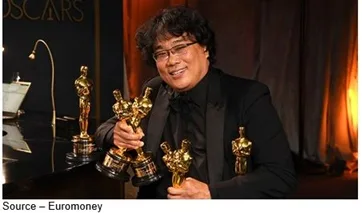
Projects like Bong Joon Ho’s Parasite showed that indie films can rise above the noise and capture gold statues and an audience.
The film opened the door for content projects–nationally and internationally.
Subtitles and dubbing suddenly aren’t barriers to customer acceptance.
Race and nationality don’t distract viewer enthusiasm for a good show in any country.
The awareness and interest in indie film projects have gotten healthier and more competitive
And with the influx of streaming platforms, competition for good films and series is high from both traditional indie distributors and streamers.
In addition, the line between TV and film is rapidly blurring, so indie filmmakers have to be ready to consider new and different options for getting their work purchased and seen.
Fellows also noted that indie filmmakers also always had to have a plan B.
“It helps you deal with disappointment and disappointment happens all the time,” he observed. “An alternative puts you in a stronger position … and it shows.”
In other words, today’s indie filmmaker has to come to grips with the facts as Queen did when she said, “No. I just always wanted to do that.”
# # #
Andy Marken – [email protected] – is an author of more than 700 articles on management, marketing, communications, industry trends in media & entertainment, consumer electronics, software and applications. He is an internationally recognized marketing/communications consultant with a broad range of technical and industry expertise especially in storage, storage management and film/video production fields. This has led to the development of an extended range of relationships with consumer, business, industry trade press, online media and industry analysts/consultants.
